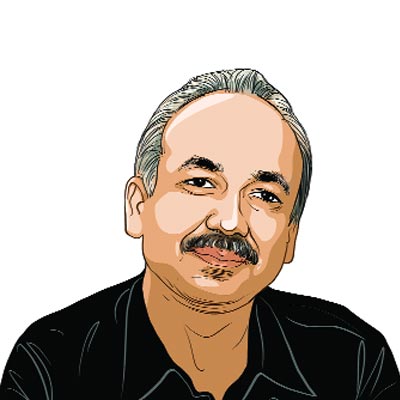Opinion The soldiers return
Nepals army is no longer hated by the non-Maoist parties but thats complicating Nepals foreign policy
On June 2,2006,Pushpa Kamal Dahal Prachanda held his maiden press conference at the Nepal prime ministers official residence in Baluatar. That was the day Prachanda came overground,ending his quarter-of- a-century in underground politics for the last 10 years,as chief of the Unified Communist Party of Nepal – Maoists (UCPN-M),that had taken up arms against the state. He spent the day in consultation with prime minister G.P. Koirala and other leaders on how to together establish peace,democracy and prosperity. Prachanda had been hailed in the meeting as the real catalyst for radical change.
But the comments he made during the press conference were startling: that the Nepal army was a bunch of corrupt rapists,that it must be downsized,and a new national army formed,integrating Maoist combatants. No one defended the Nepal army following the comments Prachanda made; they were broadcast live by almost all the television channels in the country,with Congress leader,home minister K.P. Sitaula,sitting on the dais and all smiles. Sitaula was at that time the most trusted aide of G.P. Koirala,and was involved in formulating and finalising crucial accords which put the Nepal army and the Maoist combatants at par with each other.
The Nepali Congress then believed that the Nepal army was an institution loyal to the king,and it must be weakened and humiliated if necessary. In the days that followed,the army got a constant beating from the major political parties. G.P. Koirala,who took over as PM,set up a security council, which would be responsible for the deployment of the army with the provision that the army chief would not be a member of the council,but may be invited to the meeting if desired.
Four years down the line,the army is not hated as it was then. Most political parties have come to realise that it is the only state-bearing institution that still commands peoples faith. After the exit of the monarchy,the Maoists openly targeted the Nepal army. But their sacking of Rookmangud Katawal as army chief forced political parties to review their stance towards the army.
The army was treated at par with the Maoist combatants by UN agencies,with both under their monitoring authority. As the UN Security Council meets next week to assess Nepals peace process and the future of the UN Mission in Nepal (UNMIN) when its current term expires on September 15,non-Maoist parties are asserting that the army and Maoist combatants should not be treated at par,and that the army should not be kept under the supervisory authority of UNMIN. Indeed,for the first time,the army lobbied openly against the extension of UNMINs term and clearly succeeded in rallying the non-Maoist parties.
The parties have failed to elect a legitimate government more than two months after Madhav Nepal resigned as PM,creating uncertainty over the future of the peace process and democracy; the police system is discredited,and heavily under political influence; and fears of social and political fragmentation loom large because of the ethnic divide. Thus,the armys activities are no longer greeted with hostility.
In fact,UNMIN chief Karen Landgren had nearly a one-and-a-half-hour meeting with General Chhatraman Singh Gurung,Nepals army chief,on August 31,the eve of her departure to New York. Gurungs stance was clear: that the Nepal army had no problem with UNMINs continuation,if it did not interfere with routine recruitment. Nor would the army accept a position at par with Maoist combatants. Yet ambassadors of the five permanent members of the UN Security Council have asked the caretaker PM not to reverse the consensus decision at this stage and to wait for a full-fledged government to come into existence,if,at all,reviewing UNMIN is necessary.
Developments at home suggest that it will be difficult for Madhav Nepal to ignore the pressure from the army and other parties but that not doing so may embitter the countrys relations with the UN system just as Nepal has,for the first time,fielded a candidate for the chair of the General Assembly.
yubaraj.ghimire@expressindia.com


